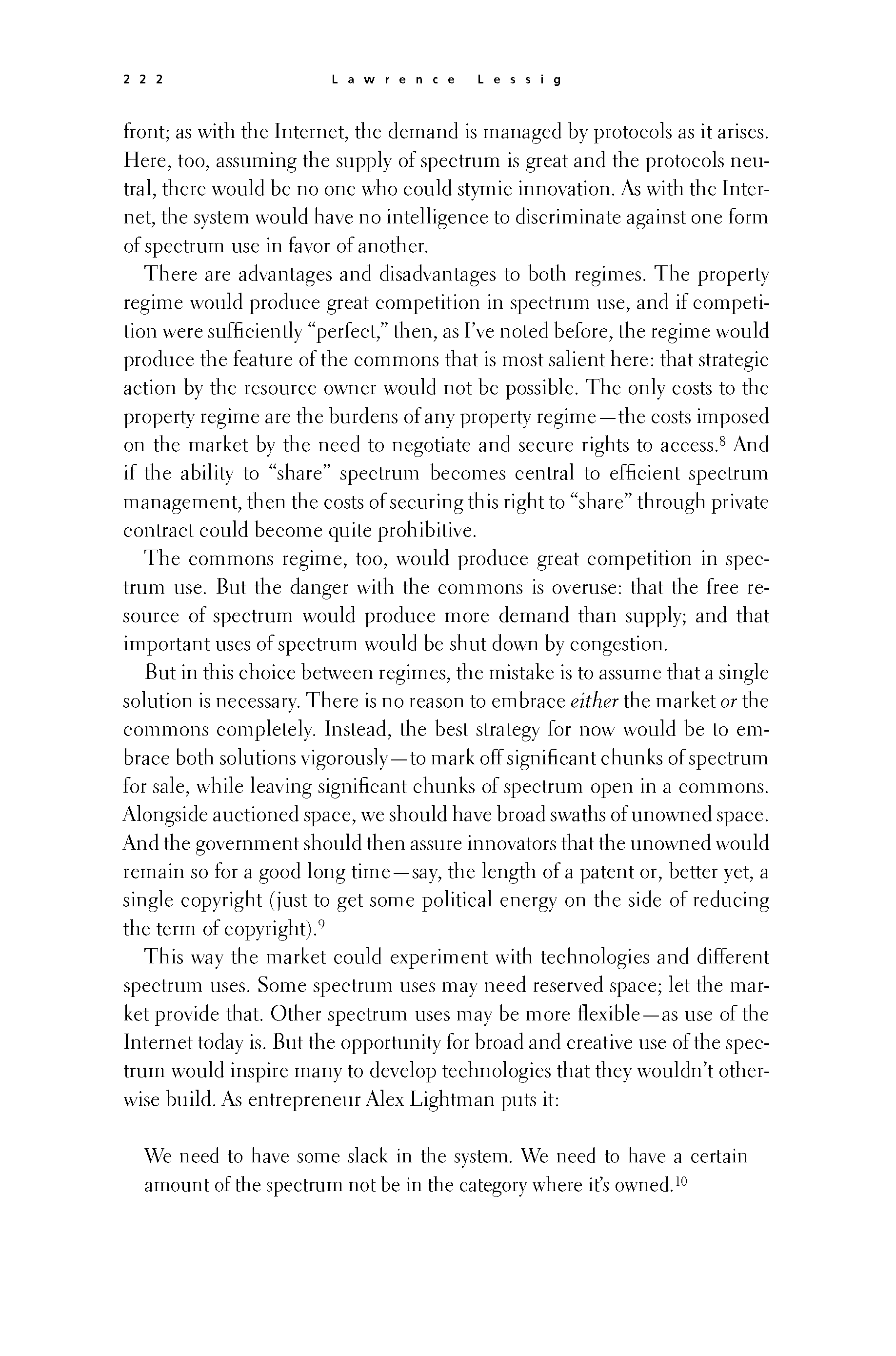 p221 _
-chap- _
toc-1 _
p222w _
toc-2 _
+chap+ _
p223
p221 _
-chap- _
toc-1 _
p222w _
toc-2 _
+chap+ _
p223
front; as with the Internet, the demand is managed by protocols as it arises.
Here, too, assuming the supply of spectrum is great and the protocols neu-
tral, there would be no one who could stymie innovation. As with the Inter-
net, the system would have no intelligence to discriminate against one form
of spectrum use in favor of another.
There are advantages and disadvantages to both regimes. The property
regime would produce great competition in spectrum use, and if competi-
tion were sufficiently "perfect," then, as I've noted before, the regime would
produce the feature of the commons that is most salient here: that strategic
action by the resource owner would not be possible. The only costs to the
property regime are the burdens of any property regime -- the costs imposed
on the market by the need to negotiate and secure rights to access.[12-8] And
if the ability to "share" spectrum becomes central to efficient spectrum
management, then the costs of securing this right to "share" through private
contract could become quite prohibitive.
The commons regime, too, would produce great competition in spec-
trum use. But the danger with the commons is overuse: that the free re-
source of spectrum would produce more demand than supply; and that
important uses of spectrum would be shut down by congestion.
But in this choice between regimes, the mistake is to assume that a single
solution is necessary. There is no reason to embrace _either_ the market _or_ the
commons completely. Instead, the best strategy for now would be to em-
brace both solutions vigorously -- to mark off significant chunks of spectrum
for sale, while leaving significant chunks of spectrum open in a commons.
Alongside auctioned space, we should have broad swaths of unowned space.
And the government should then assure innovators that the unowned would
remain so for a good long time -- say, the length of a patent or, better yet, a
single copyright (just to get some political energy on the side of reducing
the term of copyright).[12-9]
This way the market could experiment with technologies and different
spectrum uses. Some spectrum uses may need reserved space; let the mar-
ket provide that. Other spectrum uses may be more flexible -- as use of the
Internet today is. But the opportunity for broad and creative use of the spec-
trum would inspire many to develop technologies that they wouldn't other-
wise build. As entrepreneur Alex Lightman puts it:
____ We need to have some slack in the system. We need to have a certain
____ amount of the spectrum not be in the category where it's owned.[12-10]
[[222]]
p221 _
-chap- _
toc-1 _
p222w _
toc-2 _
+chap+ _
p223